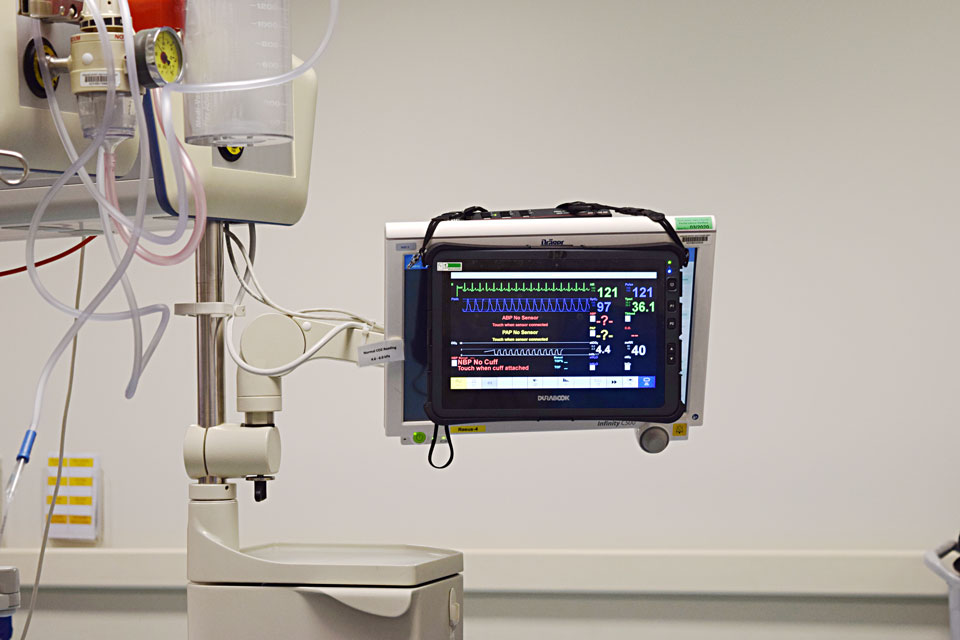Starship Children’s Health in Auckland is the largest purpose-built children’s hospital in New Zealand. It provides healthcare services specifically for young people and is a major teaching centre, leading the country in paediatric research and training.
Simulation is one of the key elements of training for child health teams and the Douglas Starship Simulation Programme replicates real life scenarios to help clinicians prepare for treating sick and injured children. Using the programme, multi-disciplinary clinical teams assess and manage the care of child mannequins.
The importance of realism
Trish Wood, Operations Manager for the Simulation Programme, explains that to be effective, the entire simulation environment has to be highly realistic: “If the team is to get the full impact of the training, they need to be able to suspend their disbelief and feel that they are in a real-life situation”, she says.“ We aim to replicate the exact environment in which the clinical team will be treating a patient”, Trish explains. “Our training is in the real setting – this might be an Emergency Department, Intensive Care Unit or operating room – not a training lab.”
A key component for building this realism is the technology required to produce and display vital signs on a monitor. This display, essentially a ruggedised touchscreen tablet, needs to be in exactly the same position and of similar size to the medical monitor in a real clinical situation. “That’s really important”, explains Trish, “because if the simulation monitor is not realistic in footprint and position, it impacts on teamwork and performance. The participants get frustrated and this may cause them to lose vital time in their decision making processes.”
The right technology for the job
Choosing the right technology for the simulation was essential. Denish Kumar, the technical brains behind the simulation programme, explains that there were a number of considerations: “The simulation monitor had to be large enough to sit over the real monitor, for exact positioning. Also, in a high pressure environment, with clinical staff moving around a confined space, safety for our teams and toughness of the device are important. And of course we needed to ensure that the device had the performance to run the simulation reliably, without breaking the spell of realism.”The hospital chose the Durabook U11I as it has the best performance, functionality and durability that meets their demanding requirements. The large format 11.6” display has glove and wet touch modes enabling clinicians to interact with the technology as they would in the real world. The tablet has more than enough power and memory to run the 1.5GB Laerdal Learning Application (LLEAP) simulation software and the reliable connectivity to maintain the realism of the environment.
The ruggedised tablet operates without wires or cables to eliminate safety hazards thanks to its high capacity and hot-swappable battery packs. It’s designed to endure hard knocks and falls, as well as withstand the tough disinfecting protocols, making the Durabook U11I truly the right technology for healthcare.
Positive outcomes for children’s healthcare
“Choosing the Durabook U11I was a good decision”, confirms Trish. “It has the right footprint, it’s powerful and it’s tough. The monitor is a vital element of the simulation, supplementing clinician’s observations of the patient and giving essential information to help determine the care needed. The device allows us to replicate existing technology in a simulated situation which is as close to the real clinical setting as possible”.The simulation programme has made a real difference at Starship: “We can observe teams working in simulated emergencies and, using a structured guide, can help them reflect on aspects of care that can be modified to ensure best patient care and increase safe and efficient practice”, says Trish. “It allows them to review the environment in their clinical setting and optimise it so that they can respond rapidly to a change in patient conditions and make decisions that can save lives.” The team are rolling out the simulation programme to more departments and other hospitals across New Zealand.
The programme’s success has seen Denish recognised on a global scale. In August, Denish won the 2019 Simulation Champion of Champions Award after being New Zealand‘s only nominee of 12 worldwide. This recognition is a tribute to the programme’s immense impact in training clinical staff to deliver better patient care for children.
For more info call 0800 27 26 26 or email info@ansutek.co.nz

No comments:
Post a Comment
Thanks for visiting. Please feel free to leave a comment or ask a question.